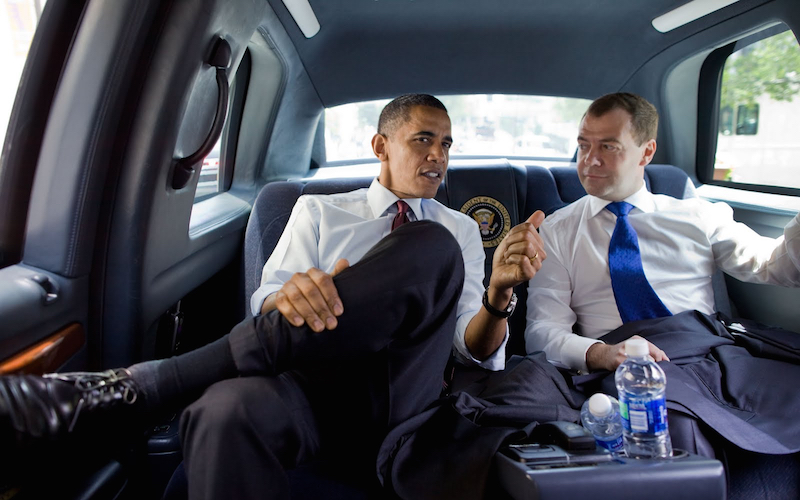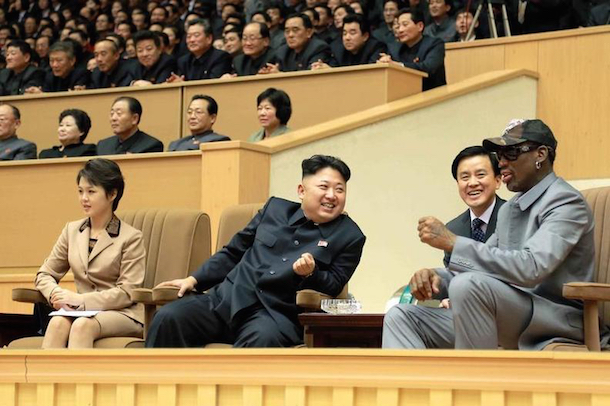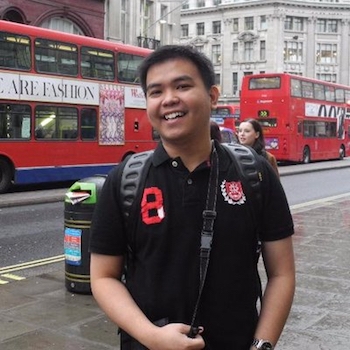
Informal Diplomacy: Burgers, Sushi or Even Baseball
When world leaders have bilateral meetings, the images of them sitting face-to-face in a hall flanked by high-level officials often captures the centre stage of the press conference. Serious issues affecting the countries concerned will be discussed and the overall atmosphere reflects a lack of enthusiasm. World leaders show their lighter side while engaging in diplomatic activities. As the saying goes, there is a time and place for everything and sometimes diplomacy can also blossom outside of formal meetings. Besides providing better photo opportunities for journalists, this way of enhancing bilateral ties also allows leaders to exchange ideas in a candid manner. While most of these engagements often proceeded smoothly, some of them have also proven to be rather controversial.
Here are some of the most memorable diplomatic meetings between world leaders that took place in the absense of formal settings.
When then Russian President Dmitry Medvedev visited Washington D.C. for the US-Russia summit in June 2010, US President Barack Obama took his guest to dine at Ray’s Hell Burger to escape the formality of the White House. Both leaders opted for cheeseburgers and shared a conversation through their interpreters. During the meal, Medvedev jokingly said the burgers were “probably not quite healthy, but very tasty.”
As US President Barack Obama kicked off his visit to Japan in April 2014, he was brought to the exclusive Michelin-starred, Sukiyabashi Jiro restaurant for a private dinner with Japanese Prime Minister Shinzo Abe. Despite the more casual setting that preceded an official welcome ceremony, a Japanese official said the meeting “was all about work.” Reports said Obama was encouraging Abe to make concessions over the Trans-Pacific Partnership (TPP) by explaining the deal in detail as the master sushi chief worked before them.
The term “Cricket Diplomacy” was first used in 1987 when then Pakistani President Zia ul-Haq was invited by Rajiv Gandhi to watch a Test match in Jaipur. This style of diplomacy was credited for cooling down simmering tension between the two South Asia rivals at that time following the Soviet invasion of Afghanistan. Zia’s move dubbed the “cricket for peace initiative” has since been replicated by leaders from both sides. During the 2011 Cricket World Cup, the former Prime Minister of India, Manmohan Singh, invited his Pakistani counterpart, Yousuf Raza Gilani, to join him in Mohali to watch the match which took place a few years after the deadly Mumbai attack that had deeply divided both countries.

In September 2008, then Turkish President Abdullah Gul paid a visit to Turkey’s bitter rival Armenia after being invited to the World Cup Qualifier match in Yerevan, where Gul watched the match with his Armenian counterpart, Serge Sarkisian. Analysts claim that this was a first step towards re-establishing diplomatic ties between the two countries. Both sides have been at odds over Turkey’s refusal to accept responsibility for the genocide of up to 1.5 million Armenians by Ottoman troops during the First World War and Armenia’s occupation of the disputed Nagorno-Karabakh region, following the war with Azerbaijan in the early 1990s.
During the Christmas holiday’s in 2014, Malaysian Prime Minister Najib Razak was invited to Hawaii by US President Barack Obama for a golfing session on the island. The Malaysian leader’s trip however was quickly mired in controversy when flooding in five states in his country worsened, triggering a public outcry over his absence as almost half of the nation was inundated with water. Eventually, Najib cut short his trip and returned to the disaster areas. At a press conference, the leader defended the trip saying it was “golf diplomacy” and had been planned for a long time.
During his ice-thawing visit to Beijing in December 2007, then Prime Minister of Japan Yasuo Fukuda had a “pitch and catch” game with his host, Wen Jiabao that lasted for about five minutes. The short game was quickly arranged after Fukuda said he had not “received a reply” from Wen for a catch game during the latter’s visit in April of the same year. His request quickly triggered a response from Wen, who said he will find time for one. The relationship has obviously seen ups and downs despite the baseball game.
Though this engagement did not involve any senior US leader, it was still controversial enough to attract the media spotlight across the globe. Dennis Rodman, who in January 2014 led a team of former NBA stars to Pyongyang for a basketball match watched by the reclusive nation’s Supreme Leader, Kim Jong-un said his effort was aimed to “connect two countries together in the world.” The US government chided his efforts saying that the basketball star did nothing to confront the Communist state over its poor human rights records. Rodman defended his engagement by telling the Associated Press “It’s like saying: Why do we have the Olympics? When everyone comes together in the Olympics, there’s no problem. That’s what I’m doing. That’s all I’m doing.”
Of course, bilateral discussions are still held in meeting halls where leaders and their senior officials have important discussions in formal settings. However, informal diplomacy does provide a leitmotif in diplomatic circles.

